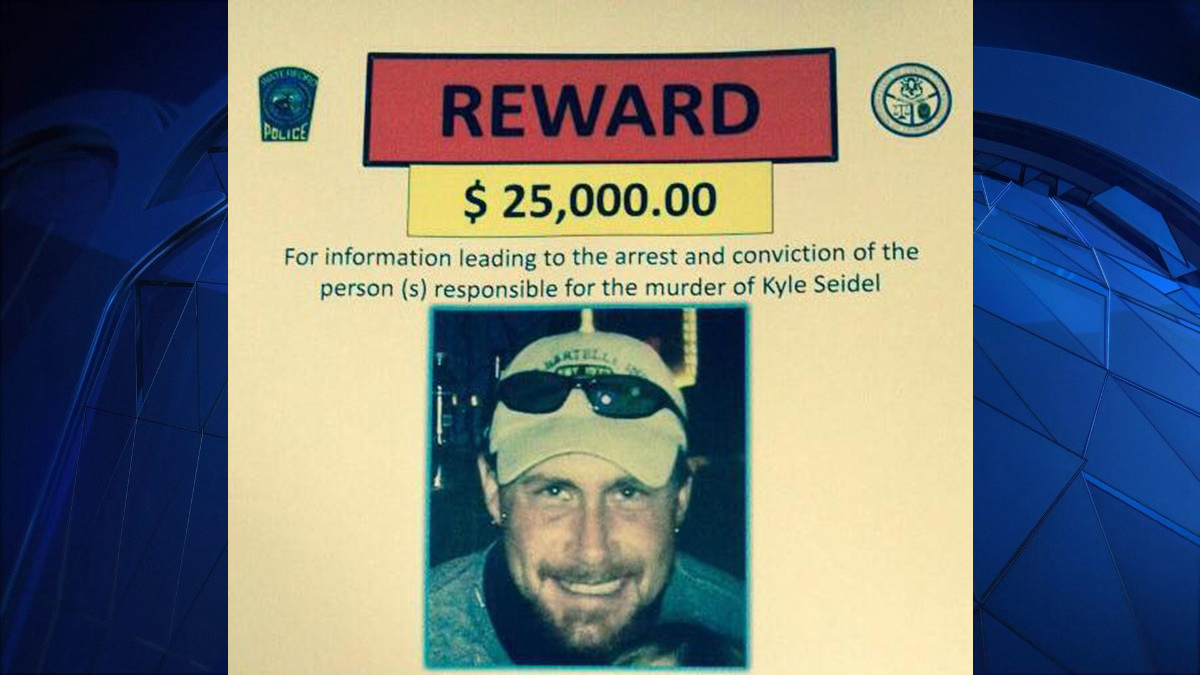There are plenty of signs pointing consumers to Massachusetts where they can legally buy cannabis. Attorney General William Tong wants them to come down.
Billboards advertising cannabis dispensaries have become a familiar sight along Connecticut highways since Massachusetts legalized recreational cannabis in 2016.
As Connecticut prepares to open its first recreational shops next year, you might expect new ones to start going up. In fact, it may be just the opposite.
Tong believes the billboards violate Connecticut’s cannabis law that took effect July 1, 2021.
Get top local stories in Connecticut delivered to you every morning. >Sign up for NBC Connecticut's News Headlines newsletter.
NBC Connecticut Investigates spotted billboards for half a dozen cannabis retailers along Interstate 84 and I-91 on a recent drive to the Bay State.
While the whole idea behind billboard advertising is that it’s hard to miss, cannabis ads follow strict guidelines.
“No representations of cannabis plants, nothing that can be mildly construed by an underage viewer that it somehow is candy or you know, is meant for them,” said Bob Patton, CEO of Green Meadows in Southbridge, Mass.
Local
Kirsten Naumann, a mother of two teenagers and a drug prevention advocate, said the words alone are enough to grab her kids’ attention.
“We went to the soccer game up in Hartford. And as we were getting off the exit, the first thing my boys noticed was that there was a billboard advertising cannabis,” she said.
Naumann and Tong believe the billboards are no longer legal in Connecticut and should have come down July 1. Tong said the billboard companies had plenty of notice.
“My understanding is that billboard companies were engaged, they were part of the process, they weighed in on the language and the legislation,” he said. “So they knew all along that this was going to be a responsibility that they would have to take on and comply with the law.”
As of July 1, adults in Connecticut can have up to 1.5 ounces of cannabis. Retail sales are expected to start in 2022. The law also regulates how and where those products can be advertised.
It says retailers shall not “engage in advertising by means of television, radio, Internet, mobile applications, social media, or other electronic communication, billboard or other outdoor signage, or print publication unless the advertiser has reliable evidence that at least ninety percent of the audience for the advertisement is reasonably expected to be twenty-one years of age or older.”
In Massachusetts, the threshold is 85 percent.
Green Meadows, which opened in Southbridge, Mass. at the end of February, has ads on three billboards along I-84 in Connecticut owned by outdoor advertising agency Lamar.
“We do find that people have noticed them and have taken a trip here to see what what's going on in Southbridge,” Patton said.
In a statement, a Lamar spokesperson said, “Before we post any cannabis ads, we thoroughly vet both the location and the content of the advertisement to ensure that it complies not only with the audience age restriction and other provisions of SB1201 but also Lamar's copy acceptance policy.”
The company also partnered with the Connecticut Department of Transportation on public services messages reminding the public not to drive under the influence.
Tong said the billboards violate the spirit, if not the letter of the law.
“I don't think that the billboard companies can establish that they're in compliance with the standard… I think common sense tells you that they can't make that showing. And that's why I think they need to take them down,” he said.
Tong’s office has been in discussions with the billboard companies. Now, he’s reaching out directly to the cannabis retailers.
On Tuesday, he mailed letters to seven dispensaries in Massachusetts asking them to remove their billboard ads.
As of Thursday afternoon, Green Meadows said they hadn’t received the letter.
The company is preparing to open a second location in Mass. and hopes to establish a presence in Connecticut as well, even if that means the billboards have to come down.
“Whatever the law is, we’ll change and adapt to it. Our internal mantra of the company is beyond compliance. And everybody in this business will tell you, you have to embrace regulation and make it your friend,” Patton said.
Tong said the issue could ultimately end up in court.
“We're talking to legislators. We're trying to figure out whether they need to make a change to the law that was just passed. So we're considering all of our options,” he said.
Naumann works with Trumbull’s Prevention Partnership, whose mission is to prevent underage substance abuse. She’s worried the billboards send the wrong message.
“It definitely makes it a little more difficult for us to provide information and education people because when people see the billboards, it automatically gives a message that it's legal, and therefore it might be safe,” she said.
Trumbull’s Prevention Partnership is working with similar groups on a regional effort to tackle the larger issue of commercial cannabis. They launched a statewide campaign called Let’s #Mention Prevention. It will be mostly on social media, but they do expect some billboard advertising as well.



